You can create pure alcohol-free perfumes at home using several natural extraction methods. Cold-pressing works great for citrus oils, while steam distillation captures floral and herbal scents. For delicate flowers, try the traditional enfleurage technique using plant-based fats, or explore CO2 extraction for the purest results. By combining these methods, you'll discover how to craft complex, authentic fragrances that preserve each botanical's true essence.
Understanding Traditional Cold-Pressed Extraction for Pure Citrus Scents
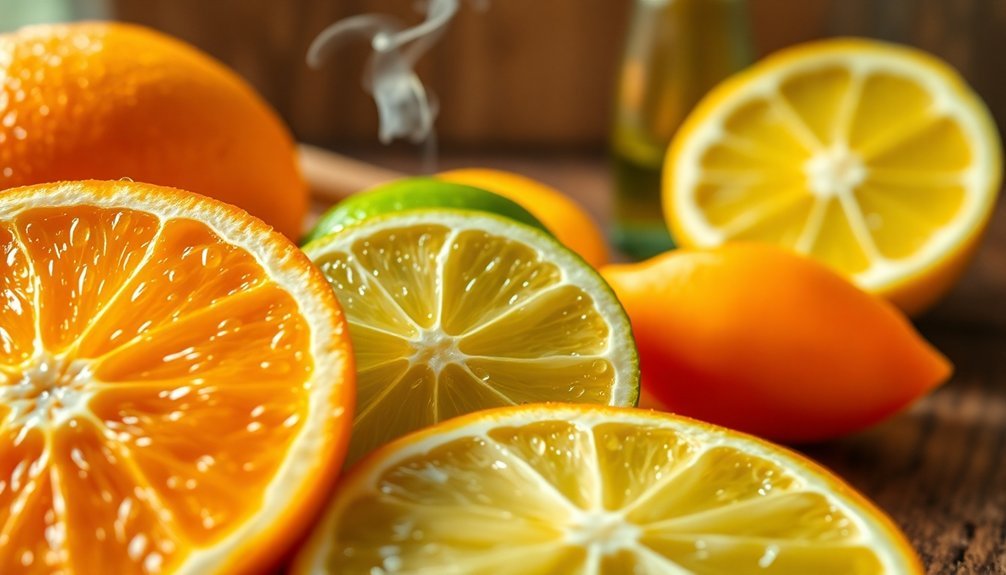
While many modern extraction methods rely on complex machinery and heat, traditional cold-pressing stands out as one of the simplest yet most effective ways to obtain pure citrus essential oils.
You'll need approximately 25 large orange peels to obtain a usable amount of essential oil for your natural perfume.
You'll find this ancient technique, also known as expression, targets the oil-rich vacuoles in citrus peels without using heat that could compromise the oil's integrity.
You can even replicate this process at home using basic tools like a garlic press.
First, you'll need to clean your citrus peels and carefully scrape away the white pith. Then, you'll press the peels to release their oils.
While the yield might be lower than other methods, you'll get a purer product that's perfect for perfumes.
Just remember that these oils are photosensitive, so store them in dark, airtight containers to preserve their quality.
Steam Distillation Techniques for Home Perfume Making
Three key elements make steam distillation one of the most accessible methods for creating essential oil perfumes at home: water, heat, and gravity.
You'll need a large heat-resistant pot, a glass bowl, and your chosen plant materials to get started.
Set up your distillation station by placing your herbs or flowers in a basket above the water level. As you heat the pot, steam will rise through the plant material, carrying the essential oils with it. This ancient technique was pioneered by Persian chemist ibn Sina in the 11th century.
You'll capture this vapor by placing ice cubes on an inverted lid, causing the steam to condense and drip into your collection bowl.
This method preserves the natural aroma while reducing pesticides and environmental toxins. You can control the temperature and pressure to protect delicate scents, making it ideal for crafting pure, natural perfumes.
Natural Enfleurage Method Using Plant-Based Fats
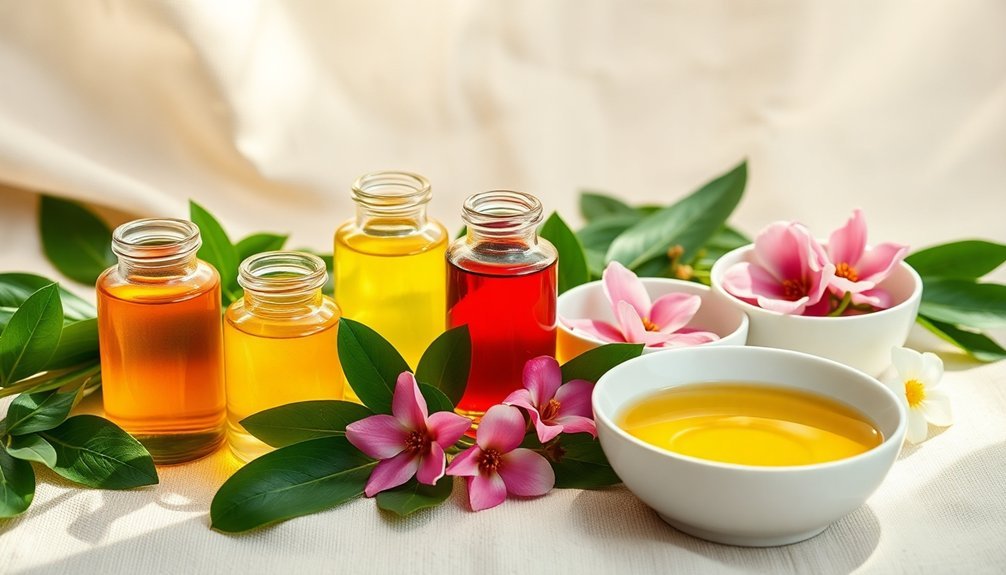
Since ancient times, enfleurage has offered perfumers a gentle way to capture the delicate fragrances of flowers using plant-based fats.
You'll need a glass tray, your chosen fat, and plenty of fresh flowers to begin this traditional process.
For best results, follow these essential steps:
- Select your base fat – coconut oil, shea butter, or jojoba oil work well for cold enfleurage.
- Spread a thin layer of fat on your glass tray.
- Place fresh flowers like jasmine, gardenia, or tuberose on the fat surface.
- Replace flowers daily for up to 36 days until desired fragrance strength is achieved.
Gather your flowers during their peak fragrance times in early morning or evening for optimal scent extraction.
Don't be discouraged by the time investment – you'll need about 60 days for full fragrance absorption.
The result is a precious enfleurage pommade that you can use directly or process further with alcohol to create absolute essence.
CO2 Extraction Benefits for Delicate Floral Notes
Modern perfumers rely on CO2 extraction to capture nature's most delicate floral essences with unprecedented precision.
You'll find that this innovative method uses pressurized carbon dioxide at low temperatures, transforming it into a supercritical fluid that gently penetrates flower petals and extracts their aromatic compounds.
Unlike traditional methods, CO2 extraction won't damage heat-sensitive components, resulting in oils that perfectly mirror the plant's natural fragrance profile.
You're getting a purer product since there's no solvent residue, and the process preserves both light and heavy molecular compounds.
While it's costlier than conventional extraction methods, the superior quality makes it worth the investment.
The environmental benefits are significant too – the CO2 can be recycled, and there's no chemical waste to dispose of.
Combining Multiple Alcohol-Free Methods for Complex Fragrances
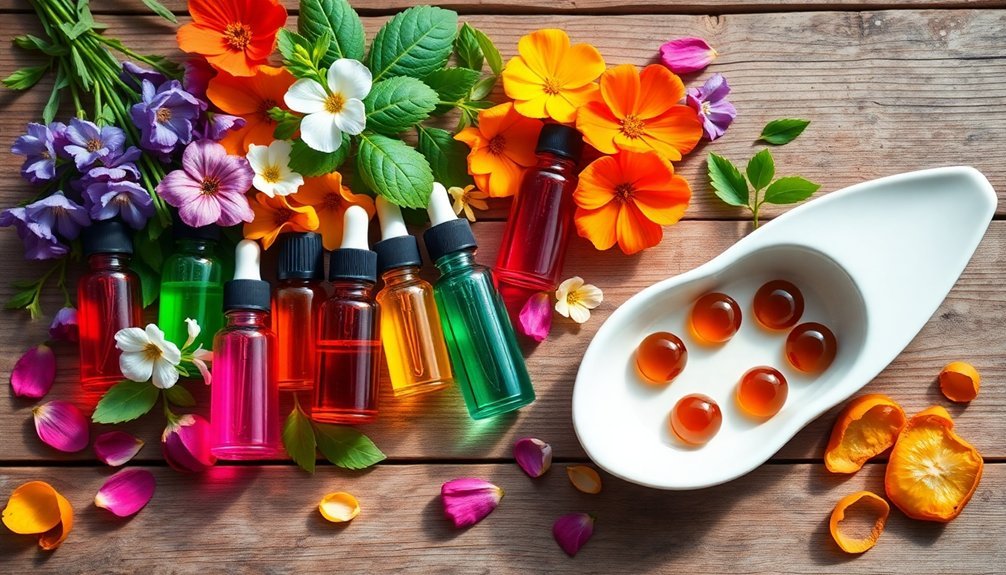
Building on the precision of CO2 extraction, perfumers have discovered that combining multiple alcohol-free methods creates even richer and more nuanced fragrances.
You'll find that blending different extraction techniques allows you to capture the full spectrum of a plant's aromatic compounds while preserving their natural integrity.
- Combine steam distillation's deep base notes with cold pressing's fresh top notes for layered complexity
- Mix CO2-extracted florals with cold-pressed citrus oils for bright, authentic scents
- Layer steam-distilled woods (like cedarwood) with cold-pressed citrus peels for depth
- Blend CO2-extracted delicate flowers with cold-pressed essential oils for balanced profiles
Frequently Asked Questions
How Long Do Naturally Extracted Essential Oil Perfumes Typically Last on Skin?
You'll notice natural essential oil perfumes typically last 2-4 hours on your skin, but longevity varies based on your skin type, application method, and environmental conditions. Oily skin retains scents longer.
Can Essential Oil Perfumes Trigger Allergic Reactions in Sensitive Individuals?
Yes, you can experience allergic reactions to essential oil perfumes, including skin rashes, contact dermatitis, and breathing issues. If you're sensitive to fragrances, it's best to patch test before using them.
What's the Shelf Life of Perfumes Made Without Alcohol-Based Preservation?
Without alcohol, your perfumes will typically last 1-3 years. You'll need to store them in dark, cool places and minimize air exposure. Using clean equipment and proper containers helps extend their shelf life.
Are Naturally Extracted Essential Oil Perfumes Safe During Pregnancy?
You'll need to be cautious with essential oil perfumes during pregnancy. Don't use them in your first trimester, and always consult your healthcare provider. Stick to proven-safe oils like lavender when diluted properly.
Why Do Some Extraction Methods Produce More Concentrated Scents Than Others?
You'll find that extraction methods like steam distillation and CO2 extraction capture more volatile compounds intact, while gentler methods like enfleurage may lose some aromatic molecules during the process, resulting in varying concentrations.
In Summary
You'll find that alcohol-free perfume making opens up a world of pure, natural fragrances. Whether you're using cold-pressed citrus oils, steam-distilled botanicals, or the traditional enfleurage method, you're creating scents free from synthetic additives. Try combining different extraction techniques to develop your signature fragrance. Remember, patience is key – these methods take time, but they'll reward you with authentic, gentle perfumes that truly capture nature's essence.
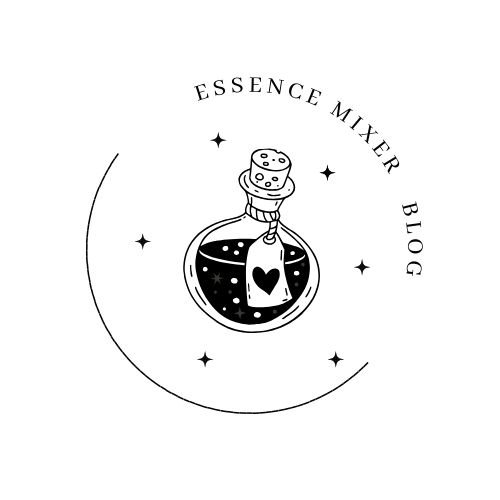
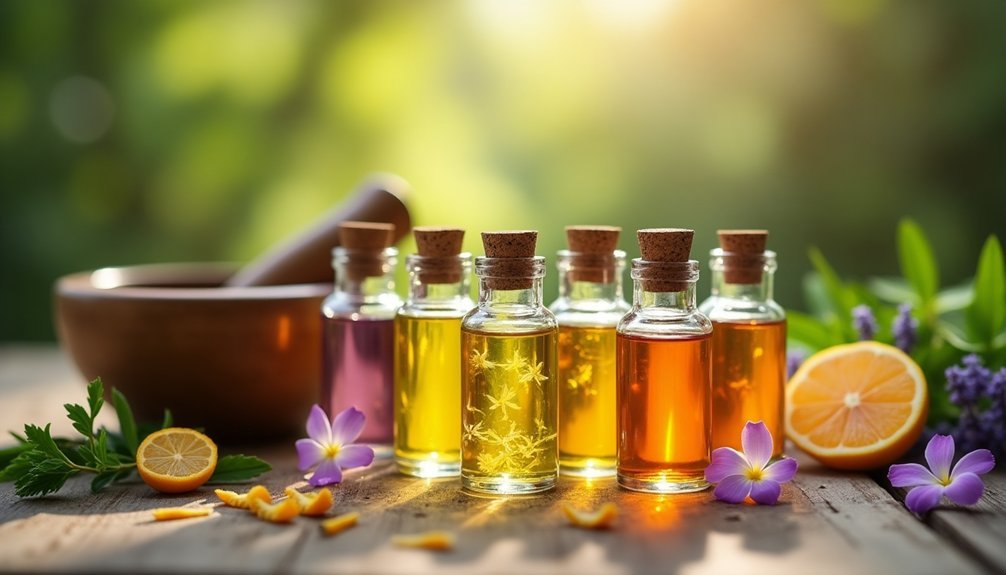
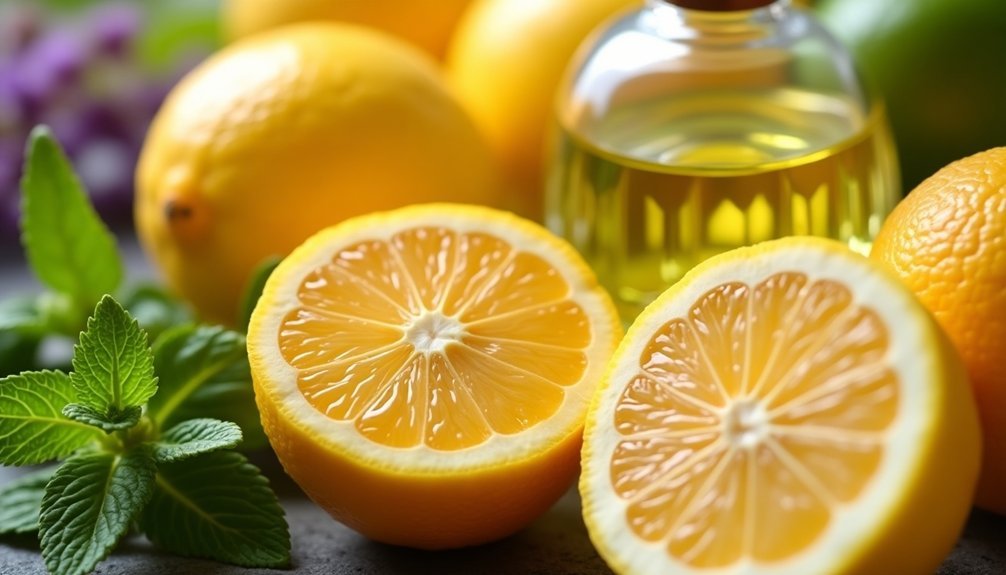
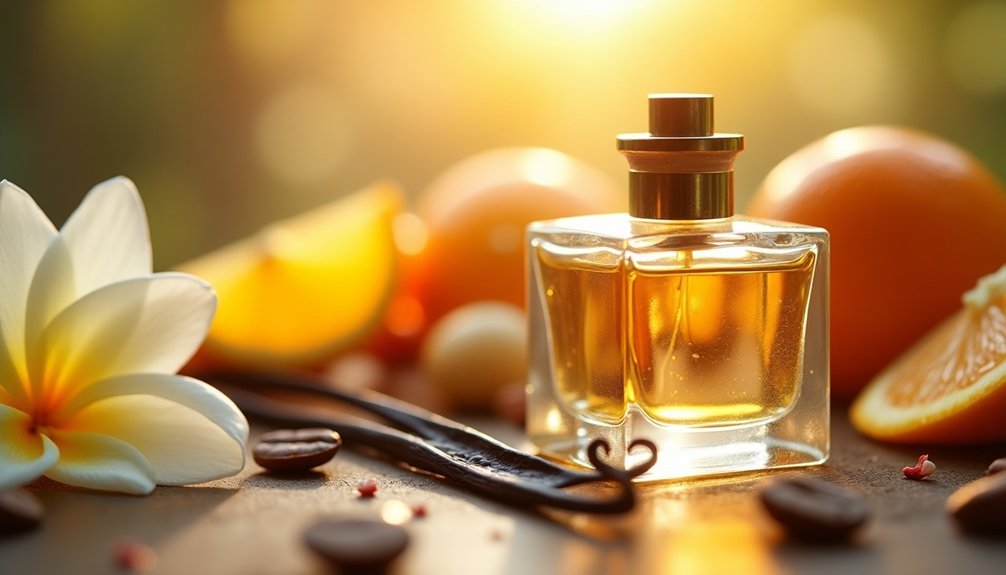
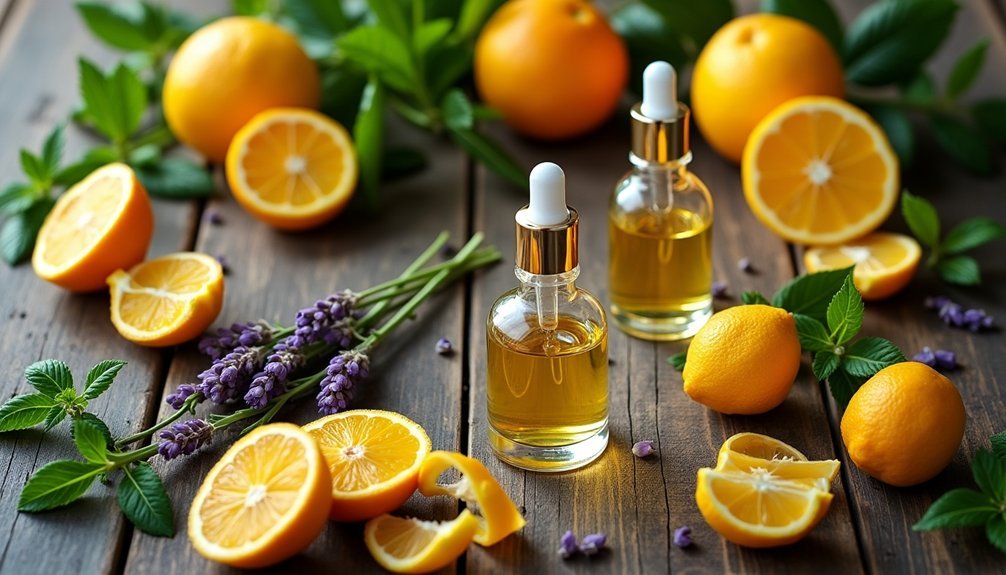
Leave a Reply